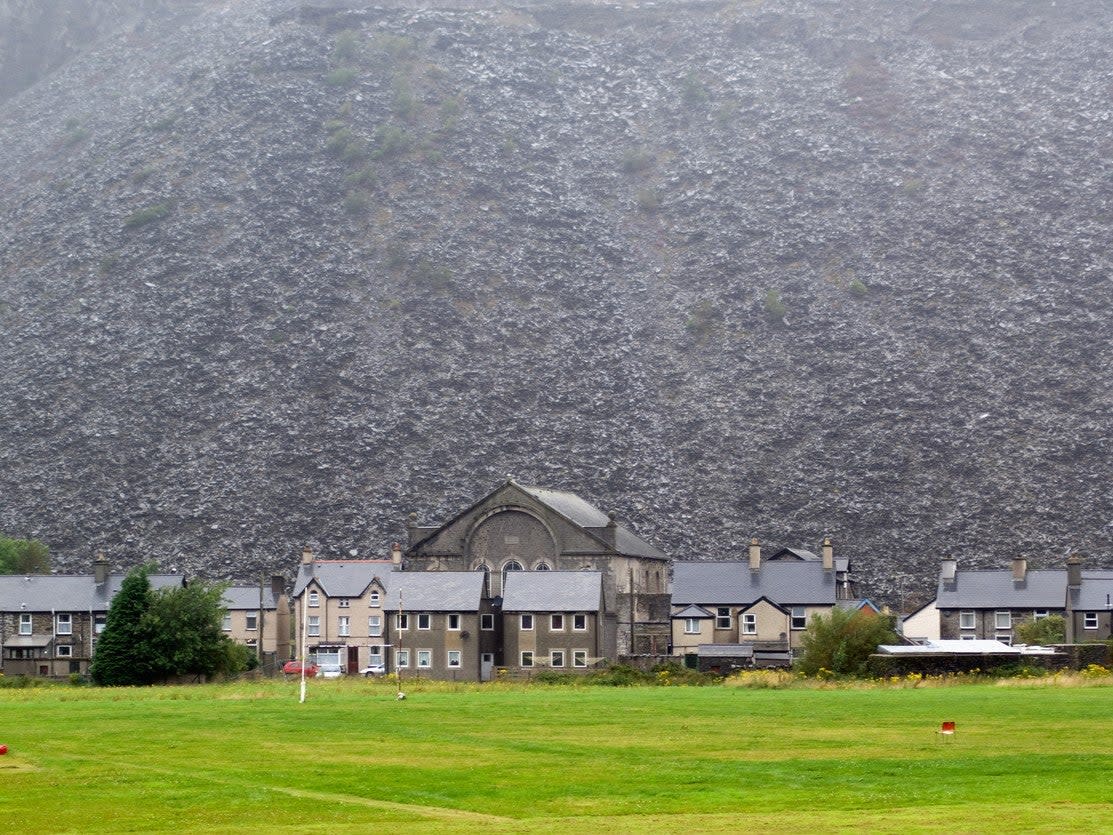Wales slate landscape granted Unesco World Heritage status

The slate landscape of northwest Wales has been granted Unesco World Heritage Site status, joining the likes of Venice and the Great Wall of China.
The area around Blaenau Ffestiniog, Llanberis, Bethesda and the Nantlle Valley was added to the UN body’s celebrated list on Wednesday during a meeting of its world heritage committee.
Delegates voted to approve the bid after hearing how the region’s quarries – and those who worked in them – had “roofed the 19th century world”.
Both the area’s natural landscape and its historic villages and towns – including Porthmadog, Abergynolwyn and Tywyn – were highlighted as key to it being considered of unique global importance.
It becomes the UK’s 32nd site on the list – although one, Liverpool’s waterfront, was controversially removed last week amid fears that development threatened its historic character.
The area, not far from Snowdonia National Park, was first nominated for potential inclusion on the prestigious register by the UK government in 2018.
Officials felt it matched perfectly Unesco’s criteria for inclusion as a “unique landmark" which has a “cultural, historical or physical significance”.
Reacting to the news on Wednesday, Mark Drakeford, first minister of Wales, said the announcement recognised the “significant contribution this part of North Wales has made to the cultural and industrial heritage not only of Wales, but of the wider world. Welsh slate can be found all over the world.”
He added: “The quarrying and mining of slate has left a unique legacy in Gwynedd, which the communities are rightly proud of. This worldwide recognition today by Unesco, will help preserve that legacy and history in those communities for generations to come and help them with future regeneration.”
Slate has been quarried in the region for almost two millennia, but it was during the Industrial Revolution that the area became a true world leader in the field as demand surged from the ever-growing towns and cities across the UK and then beyond.
By the 1890s the quarries were producing almost 500,000 tonnes of slate a year – accounting for a third of all roofing slate used across the planet.
The result was that Gwynedd became home to a number of “ingenious developments in quarrying and stone processing”, as well as the building of mountain railways.
Dyfrig Siencyn, leader of Gwynedd Council, added: “The legacy of the quarries remains extremely evident around us from the striking landscape, the industrial buildings and steam railways to our villages and towns.
“Not only is the influence of the quarrying industry visible, but its heritage is still heard strongly in the language, traditions and rich histories of these areas.
“Our aim is to celebrate this heritage and landscape and recognise their historic and industrial importance to humankind – in order to create opportunities for the future.”
The new honour also celebrates the fabric of community life in the area’s villages and communities: chapels, churches, schools, libraries and meeting places were all included as being key to the region’s unique historical standing, the UN said.
Christopher Catling, secretary of the Royal Commission on the Ancient and Historical Monuments of Wales, whose staff helped to compile the nomination document, said: “Human muscle and ingenuity have left us with a remarkable landscape combining natural and man-made features that are fully worthy of being included in the top tier of all heritage sites in the world.”
But the region is not alone in receiving Unesco approval this year.
Another 30 sites have also been added to the list in 2021. They include the Dutch Water Defence Lines in the Netherlands and the Trans-Iranian Railway.
Just last week, meanwhile, Liverpool became only the third place stripped of its place on the prestigious list after delegates decided it’s Victorian docks were in danger of losing their “outstanding universal value”.
Read More

 Yahoo News
Yahoo News 
